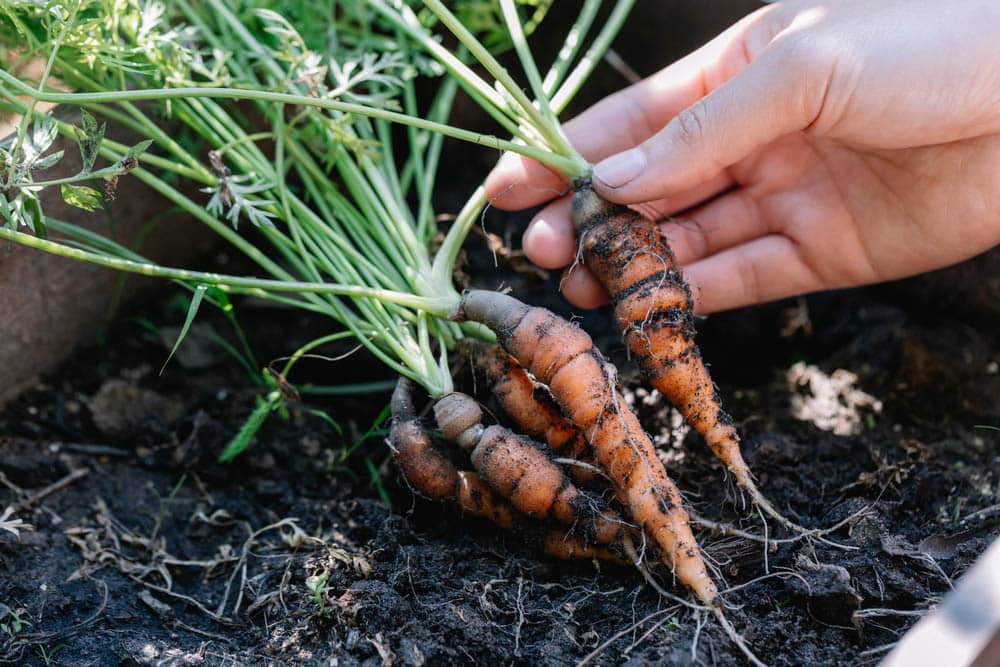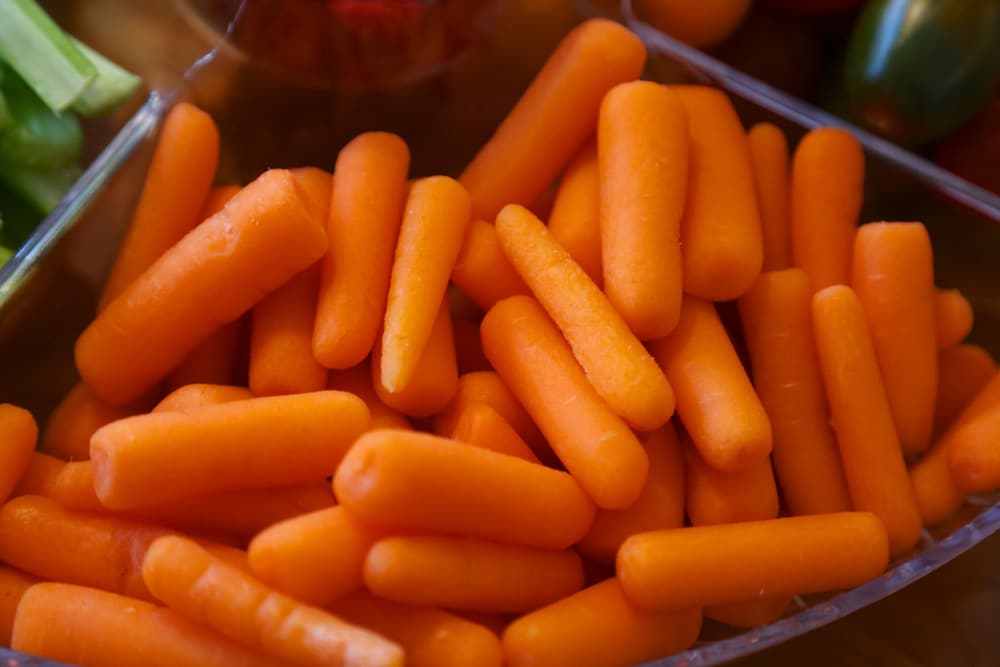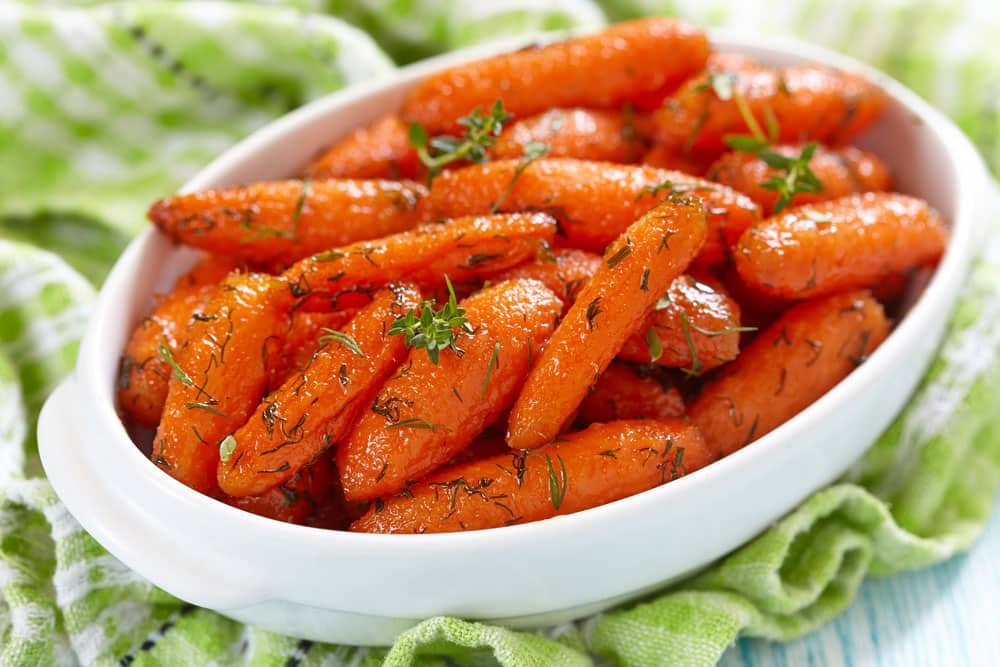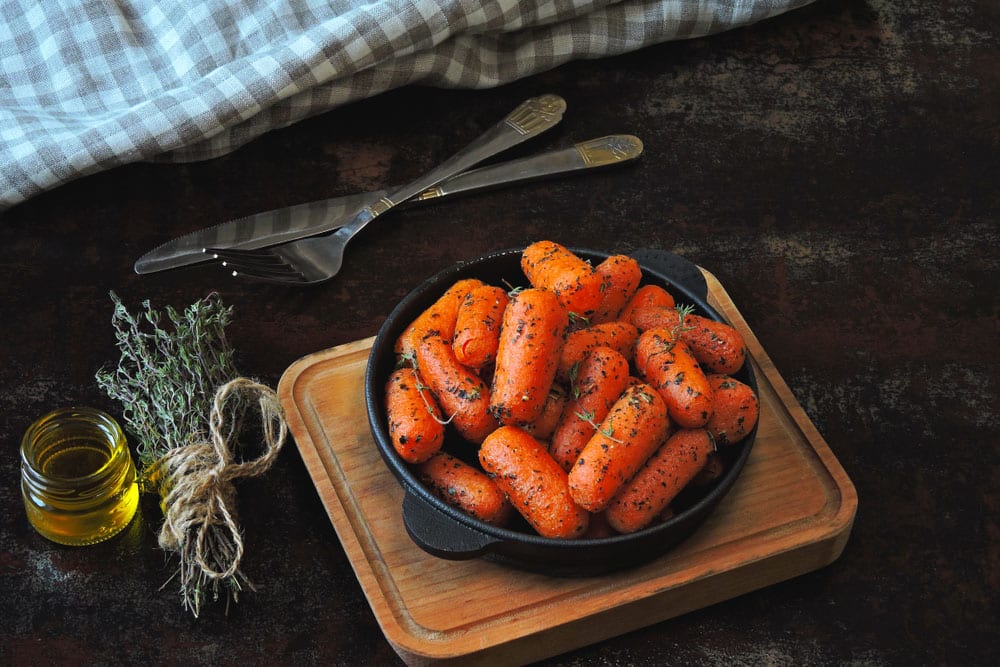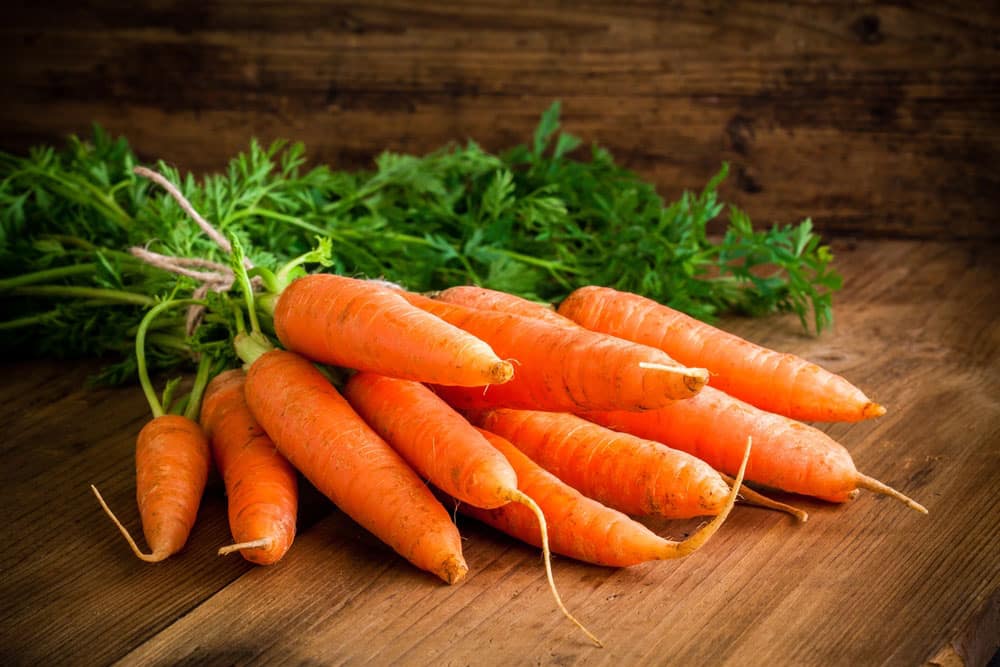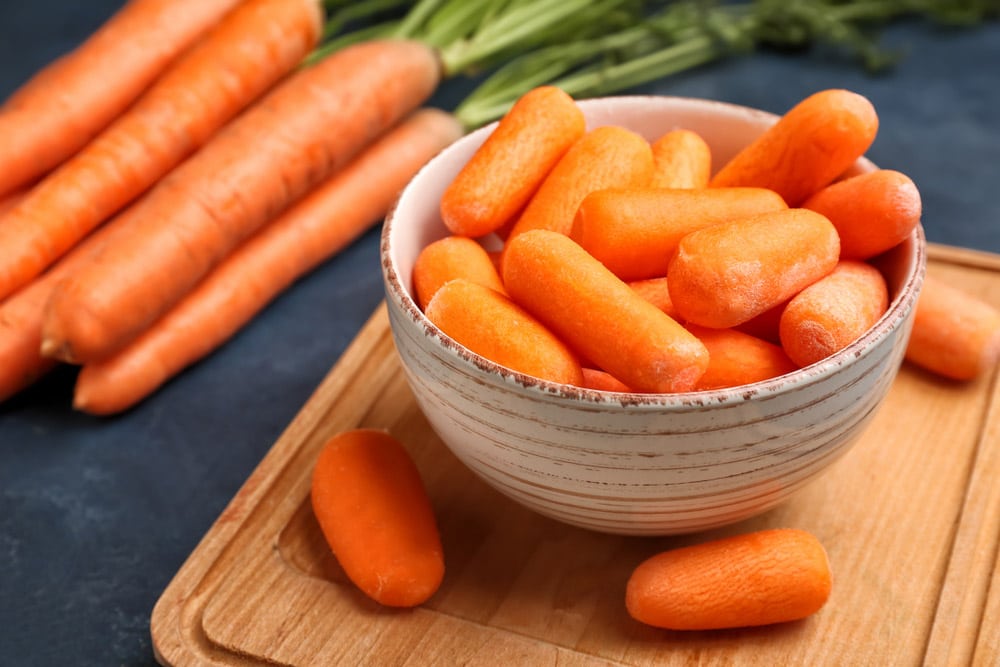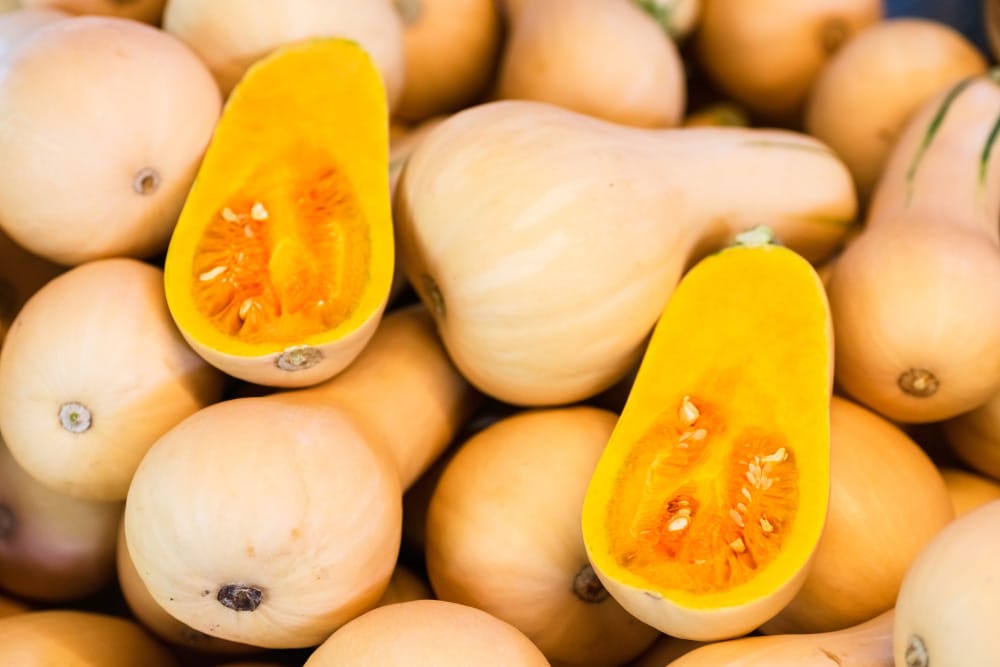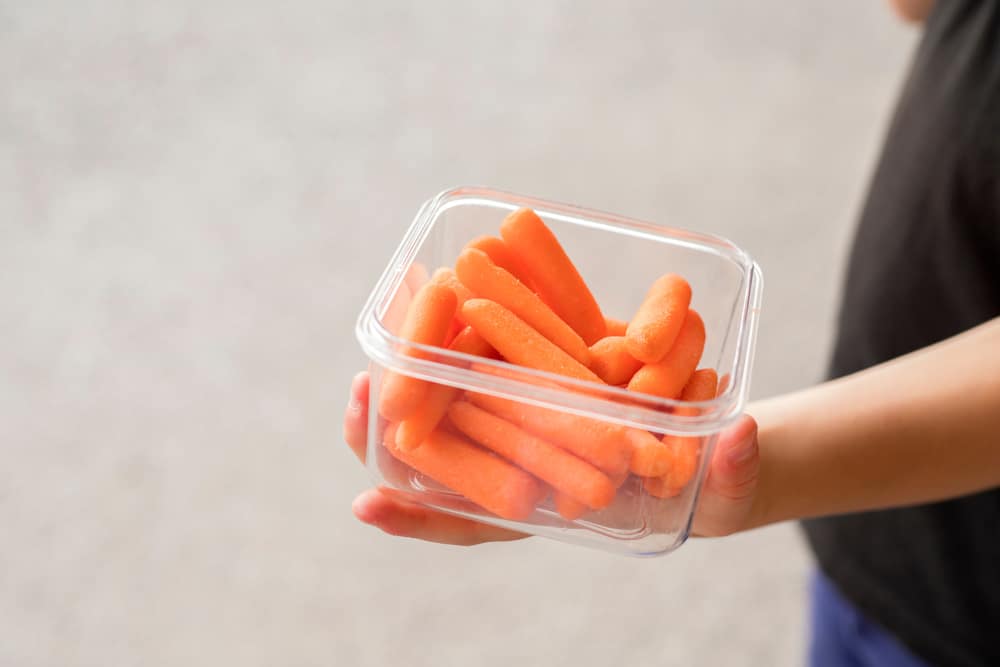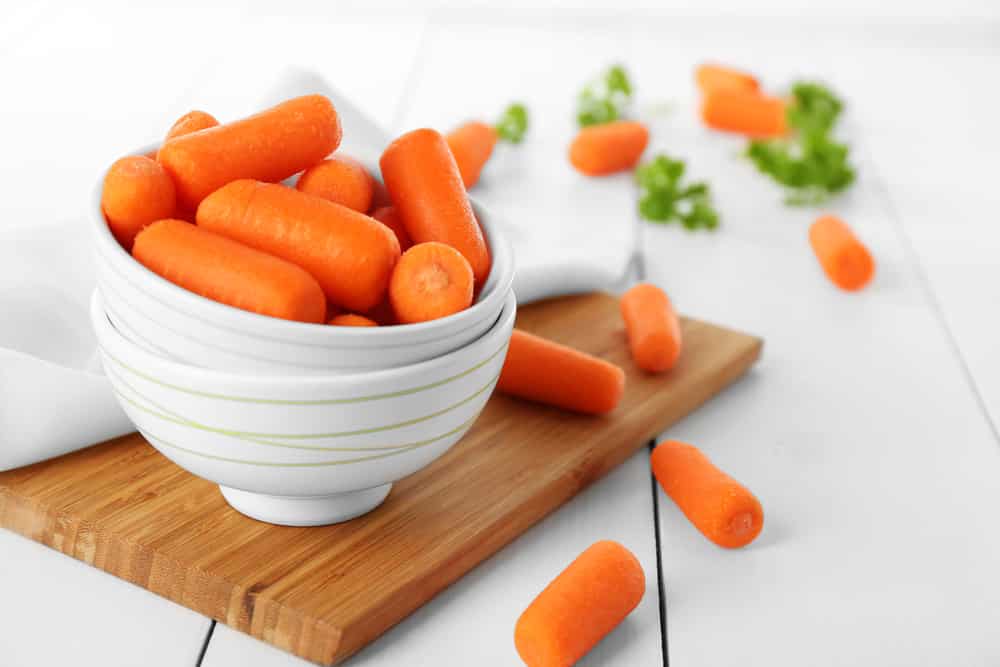
Did you know carrots are one of the most widely consumed roots out there? It seems everyone loves them! From people with an active lifestyle to people following the keto diet, thanks to their taste AND nutrition, carrots are extremely essential to menu planning for today’s households.
However, one must remember carrots’ availability is subjected to the season. For this reason, people ask about the possibility of substituting baby carrots for carrots.
To get that information, you have to read through this article and then you’ll have all you need to plan your next meal effectively—no matter the season.
What are Baby Carrots Exactly?
The baby carrots you buy in store are basically ordinary carrots. However, farmers harvest them before they mature and then are sold when they are still small. This type of carrot is loved by many because they’re soft and also much sweeter than a fully matured carrot.
Then, to clarify, there are products labeled as ‘baby carrots’ and also ones whose packaging says ‘baby-cut carrots’. While the first are usually immature carrots, the latter are most likely regular carrots that have been cut to a much smaller size.
Many people love the bite-sized baby-cut carrots because they’re easy to handle and snack on. Do make sure to double check which type you’re buying when looking for a carrot substitute. So, note that one type of baby carrots may not be exactly the same as another brand’s.
As described above, baby carrot products are made in various ways. Some are harvested before their time of maturity, to maintain the baby size while other manufacturers cut them down, leading to baby-cut carrots.
But why harvest baby carrots early?
Carrots that are sold as baby carrots are sometimes harvested because of crop thinning, but it has also become a specialty crop now. This is thanks to their popularity among certain consumers thanks to the carrots being known for their tenderer and sweeter texture and flavor.
Some suppliers use Chantenay carrots, since it’s a very short variety of carrot. It often grows to around 5 inches only. That makes it look like a baby carrot, even if it’s almost mature. However, any type of carrot can simply be harvested a little early and be sold as a baby carrot.
Can You Substitute Baby Carrots for Carrots?
Now, as far as substituting is concerned, it’s a yes! You can substitute baby carrots for carrots if your local store doesn’t have the larger ones your recipe describes.
Baby Carrots Sizing and Production
Compared to traditional carrots, the baby carrots just have a small diameter and length. Often the flavor of baby-cut carrots tends to be the same as the larger carrots in your pantry.
The best thing about baby-cut carrots is that they are pre-peeled and prewashed, which leads to ease of use. Dinner can be on the table much quicker thanks to less preparation time. That’s one of the best reasons to use them rather than normal ones.
As far as these baby-cut carrots’ size is concerned, they are usually cut at two inches, polished, and peeled to create a small and round appearance. Generally, the medium to large carrots measure anything between seven inches and nine inches.
Therefore, they can result in three to four baby-cut carrots when cut to size. There was a time when baby-cut carrots were made in order to find a proper use for irregular and misshapen carrots. Over time, these carrots have become famous and very common to use.
The practice of cutting large carrots into baby-cut carrots started in the 1980s—not that long ago really. But today, these products account for around 70% of carrot sales.
For making these carrots, the Imperator carrots are used because they tend to be thin and grow up to ten inches in length. The Imperator type of carrots are popular for their rich orange color, and they are basically formulated to ensure a consistent size.
What Dishes to Use Baby Carrots for When Cooking
When it comes to baby carrots, they can be slender and sweeter, which makes them suitable for desserts and cakes. Baby cut carrots are excellent for snack plates and serving with dips.
But, when paired with the right seasoning you can use it as a carrot substitute in almost any type of dish, from roasted vegetables to soups. As far as the substitution quantity is concerned, keep in mind that there are significant differences in texture and appearance.
If you’re also concerned about the nutritional value of the dish, no worries there! Your baby carrots will provide a very similar amount of calories, vitamins and antioxidants than regular carrots. You should also take care when including baby-cut carrots in your meal plans for the month.
There is a chance of them becoming a bit slimy in the packaging, because they don’t have their skin to protect them against decay. Therefore, rather buy them shortly before you plan on using them for a dish.
Do make sure where you purchase your baby carrots from. You need quality produce. Truth be told, some people really don’t like baby carrots and one reason is that they are deemed premature carrots. On occasion, they can have a soapy and somehow chemical flavor.
But don’t assume all baby carrots will taste this way. Carrots that don’t taste as well may be a specific variety that has reached a certain maturity stage.
What Are Carrots?
Now we’ve talked about how baby carrots can be used for substituting carrots, so it’s only fair to talk about carrots for some clarification too. The carrots you know best are basically the root vegetables with orange color. However, there are other colored varieties available, including:
- Yellow
- Black
- Purple
- White
- Red
Carrots were originally cultivated for their seeds and leaves. However, the root is of course quite large in size, making it easy to have larger portions of food. Also, it’s more palatable than many other parts of the plant.
Certain carrots have woody, sweet, slightly harsh, and earthy flavors. As far as production is concerned, China has become the largest producer of carrots. The orange-colored carrots are the most commonly found carrots in your local produce aisle.
They are known for mild earthy tones and higher sweetness levels than some other root vegetables. On the other hand, you can also look out for these types of carrots, depending on the dish you’re making:
- Purple carrots with a peppery and sweet flavor
- Gold or white carrots for mild flavors, with the flavor being much closer to winter squash
- Red carrots have a sufficient amount of earthy tones and sweet flavors, but note that they cannot be eaten in raw form
How Many Baby Carrots Equal One Carrot?
To ensure your recipe comes out the best way possible, do make proper comparisons between different types of carrots and the baby carrots you decide to use. To illustrate, usually four to five baby carrots can be used for substituting one large-sized carrot.
However, the substitution amount can vary based on the size of the baby carrot or baby-cut carrot. You may want to read the finer details of a recipe to gauge how many grams or ounces of a certain vegetable you need. Then measure the amount of baby carrots accordingly.
If your recipe gives measurements in ‘cups’, you can use about 12 baby carrots for each cup of carrots described in the recipe. That is also about a standard serving of the vegetable.
What are Good Substitutes for Carrots in Recipes?
Now, what do you do if you can’t find baby carrots to substitute the carrots in your dish? Let’s be clear and say that in terms of flavor, you should do your best to at least find baby carrots to substitute this orange vegetable.
Carrots do have a unique flavor to them that no other vegetable can quite provide you with. However, you can still have a tasty dish if you follow these tips:
- If you planned on using carrots to give a dish an orange hue, you can try butternut for a similar effect. Just note it doesn’t work as a substitute in salads, as butternut squash requires cooking until it’s soft. But it’s a good carrot substitute for soups.
- For an ingredient that is also low in calories, try parsnips.
- Turnips have a great variety of nutritional content like carrots do.
- If you’re after an earthy flavor, beets often suffice.
- When your dish requires a certain texture, cabbage often works well to recreate a similar structure to what carrots do for a dish.
The Bottom Line
You’re in luck! When making a dish and realizing you’ve run out of carrots—or there aren’t any at the store—the smaller carrot types are handy substitutes.
What’s more, baby carrots are readily available, so they can easily be used in place of regular orange carrots at almost any time of the year. Generally, it is suggested to use around four to five baby carrots for every large carrot that a recipe requires.
If you are concerned about flavor, baby carrots can replicate the flavor of regular carrots pretty easily. However, buy baby carrots from a reputable grocery store to make sure the flavors are appetizing and similar to traditional carrots’ aromas.
